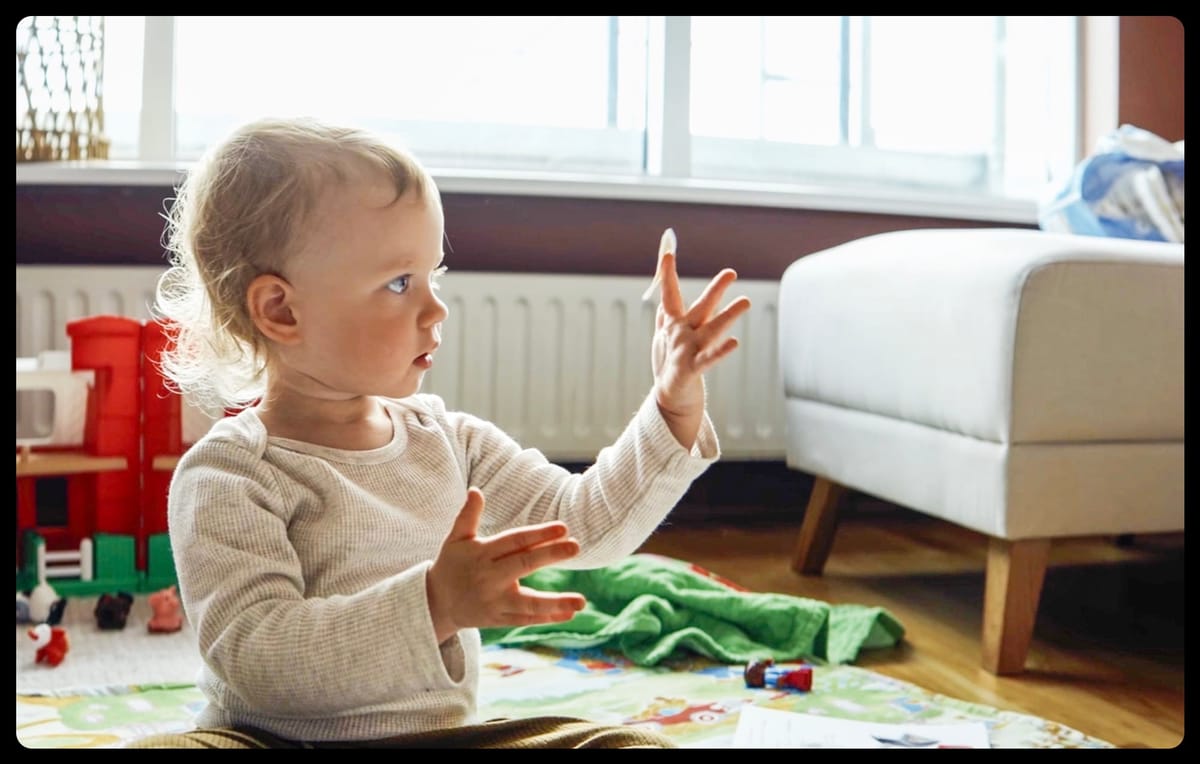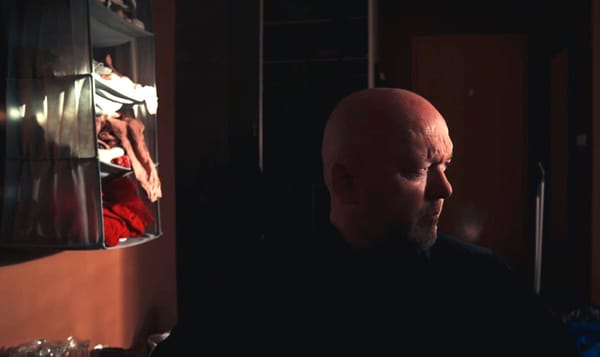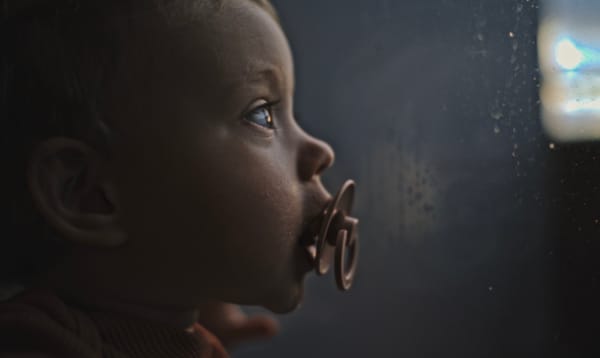A Dress That Broke My Heart
A short tale of my daughter's magic.

Lately I’ve been trying to capture the small things in my writing — the moments that seem ordinary until they suddenly aren’t. Here is a morning with my daughter.
Iconic and motionless in a sea of children. She stood there.
For three days straight, my two-year-old daughter had been talking about it — a small, floral dress that shimmered faintly when it caught the morning light, nothing extraordinary to anyone else, but a whole universe to her. The night before, while tugging her pajamas over her head, she said it again: “Dress, Daddy.” In Icelandic, a dress is “kjólinn” — and she pronounces it “Gjogglin.”
“Yes,” I promised softly, brushing a curl from her forehead. “In the morning, sweetheart.”
And sure enough, when dawn came — six a.m., sharp — her first word wasn’t hi or breakfast or even Daddy.
It was: “Gjogglin,” (the dress).
We slipped it over her head together. The cotton whispered as it fell into place. She beamed. There was something ceremonial about it, like she was putting on a tiny version of armor — not to defend herself, but to announce her presence to the world because when the dress comes on, she starts dancing to the music in her mind.
Those two hours before kindergarten are always fragile for us. She’s new there. I’m still learning how to let go. There’s an invisible thread of anxiety between us — mine taut with fear she’ll cry, hers humming with whatever small, wordless panic a two-year-old carries. Driving through the dark Reykjavik Octobor morning fog, I kept things light. We played. We laughed. I avoided mentioning the dress, because I didn't want to spoil her discovery of it.
At the kindergarten gate, she began her ritual whisper: “No… Daddy… Daddy.” But this time, she didn’t cry. She asked to be set down on her own two feet, inside the gate, not passed into anyone’s arms. I did as she asked. She steadied herself — my brave, trembling little person — and adjusted the hem of her dress as if preparing for something sacred.
I walked away quickly, because that’s what parents are told to do: don’t linger, don’t feed the separation. But as I looped around the building, something made me look back. Through the window I saw her.
My daughter stood still in a storm of small humans — children running, tumbling, laughing, wailing — and she was just there, a quiet pillar of stillness amid the noise, her heels anchored to the floor, the soft fabric of her dress catching the light like a small flag of independance.
And in that moment, I understood she wasn’t being strong. She was waiting. Waiting for someone, anyone, to notice her dress.
That image — my daughter, luminous and still, and unseen — lodged itself somewhere deep within me. It’s not the heartbreak of distance. It’s the heartbreak of recognition: that even at two years old, she already knows what it feels like to want to be noticed.
And so she broke my heart — not because she cried, but because she didn’t. Brave, vulnerable, allowing her father to grow by just standing there.




